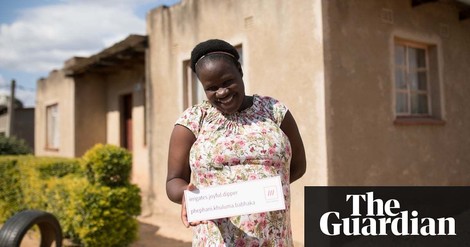Your podcast discovery platform
Curious minds select the most fascinating podcasts from around the world. Discover hand-piqd audio recommendations on your favorite topics.

piqer for: Global finds Technology and society Health and Sanity
Nechama Brodie is a South African journalist and researcher. She is the author of six books, including two critically acclaimed urban histories of Johannesburg and Cape Town. She works as the head of training and research at TRI Facts, part of independent fact-checking organisation Africa Check, and is completing a PhD in data methodology and media studies at the University of the Witwatersrand.
The Three-Word Code That Might (Re)Map The World
It's an API that emerged from the rural English countryside, but which could revolutionise the way technology is able to map and engage with the places that are off the grid, including in rural parts of South Africa where street names (or even formal streets) aren't always available – and certainly aren't on any GPS. Yet.
The UK start-up known as what3words takes an innovative approach to the world's surface – which they have divided into 57-trillion squares of three-by-three metres each (sorry Imperial people, metric ftw). Instead of triangulating the squares' location using cell towers, this app uses simple and intuitive combinations of words. Just three words. And, with 40,000 recognisable words in the English dictionary alone, that gives more than 64-trillion combinations; or, more than enough to map the world through descriptors, which are easy to share, understand and remember, rather than the general but not-always-specific legend of postcodes, or the very specific but much more complicated numbers of longitude and latitude.
Aside from being incredibly useful, it's also rather fun – to look up your own address, or the address(es) of where you work, shop, or study, and what word combinations come up (kind of like three-word Haiku!). For example, at the entrance to the university building in Johannesburg where I sometimes work, one of the squares/addresses comes up as: textiles.burns.teach.
